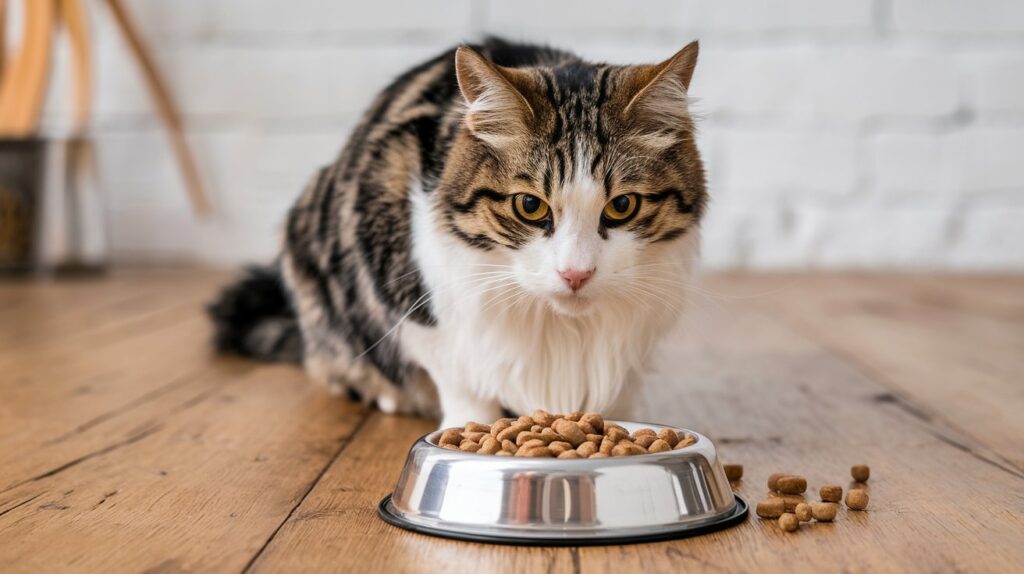Table of Contents
- Introduction
- Can Dogs and Cats Thrive on a Plant-Based Diet?
- Nutritional Needs of Dogs vs. Cats
- Benefits of Plant-Based Diets for Pets
- Risks and Challenges of a Vegan Diet for Pets
- How to Safely Transition Your Pet to a Plant-Based Diet
- Expert Opinions on Plant-Based Diets for Pets
- Conclusion
- FAQs
Introduction
The debate over plant-based diets for dogs and cats has gained traction as more pet owners explore sustainable and ethical feeding options. While dogs are omnivores and can adapt to a carefully balanced vegan diet, cats are obligate carnivores, making their nutritional needs more complex. This article explores the benefits, risks, and expert recommendations surrounding plant-based diets for pets, helping you make an informed decision.

Can Dogs and Cats Thrive on a Plant-Based Diet?
Dogs have a flexible digestive system, allowing them to derive nutrients from both animal and plant sources. However, cats require essential amino acids like taurine, arachidonic acid, and vitamin A, which are primarily found in meat. While plant-based dog food can be nutritionally complete with proper supplementation, vegan cat food remains controversial and requires veterinary supervision.
Nutritional Needs of Dogs vs. Cats
| Nutrient | Dogs (Omnivores) | Cats (Obligate Carnivores) |
|---|---|---|
| Protein | Can come from plants or animals | Must come from animal sources |
| Taurine | Can be synthesized | Must be obtained from meat |
| Vitamin A | Can convert beta-carotene | Requires preformed vitamin A from liver/fish |
| Arachidonic Acid | Can synthesize from linoleic acid | Must come from animal fats |
Benefits of Plant-Based Diets for Pets
- Reduced environmental impact (lower carbon footprint)
- Ethical considerations (no animal slaughter)
- Potential allergy relief for pets with meat sensitivities
- Lower risk of certain diseases (e.g., obesity, kidney issues)
Risks and Challenges of a Vegan Diet for Pets
- Nutritional deficiencies (taurine, B12, iron)
- Digestive issues (fiber overload, poor protein absorption)
- Palatability problems (some pets reject plant-based foods)
- Long-term health risks (especially for cats)
How to Safely Transition Your Pet to a Plant-Based Diet
- Consult a veterinarian to assess suitability.
- Choose commercial vegan pet foods that meet AAFCO standards.
- Monitor health markers (blood tests, coat condition, energy levels).
- Introduce gradually to avoid digestive upset.
- Supplement key nutrients (taurine, L-carnitine, omega-3s).
Expert Opinions on Plant-Based Diets for Pets
- American Veterinary Medical Association (AVMA): Dogs can adapt, but cats require careful monitoring.
- Pet Nutrition Alliance: Vegan diets must be complete and balanced.
- Veterinary Nutritionists: Caution against homemade vegan diets due to risks of imbalance.
Conclusion
While plant-based diets for dogs can be viable with proper planning, cats face greater risks due to their strict carnivorous needs. Always prioritize your pet’s health by consulting a vet before making dietary changes. Whether for ethical, environmental, or health reasons, responsible supplementation and high-quality commercial options are key.
FAQs
1. Can dogs live on a fully plant-based diet?
Yes, but only if the diet is nutritionally balanced with added supplements like taurine, B12, and essential amino acids.
2. Is a vegan diet safe for cats?
It’s risky. Cats need animal-derived nutrients, and a vegan diet may lead to severe deficiencies without expert guidance.
3. What are the best plant-based protein sources for pets?
- Dogs: Lentils, chickpeas, quinoa, soy
- Cats: Not recommended as primary protein sources
4. How do I know if my pet is thriving on a vegan diet?
Monitor energy levels, coat health, weight, and bloodwork regularly with a vet.
5. Are there AAFCO-approved vegan pet foods?
Yes, brands like V-Dog, Halo Vegan, and Amì meet AAFCO standards for dogs. Few options exist for cats.
